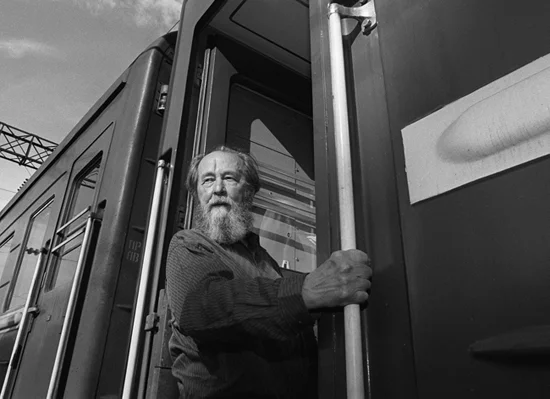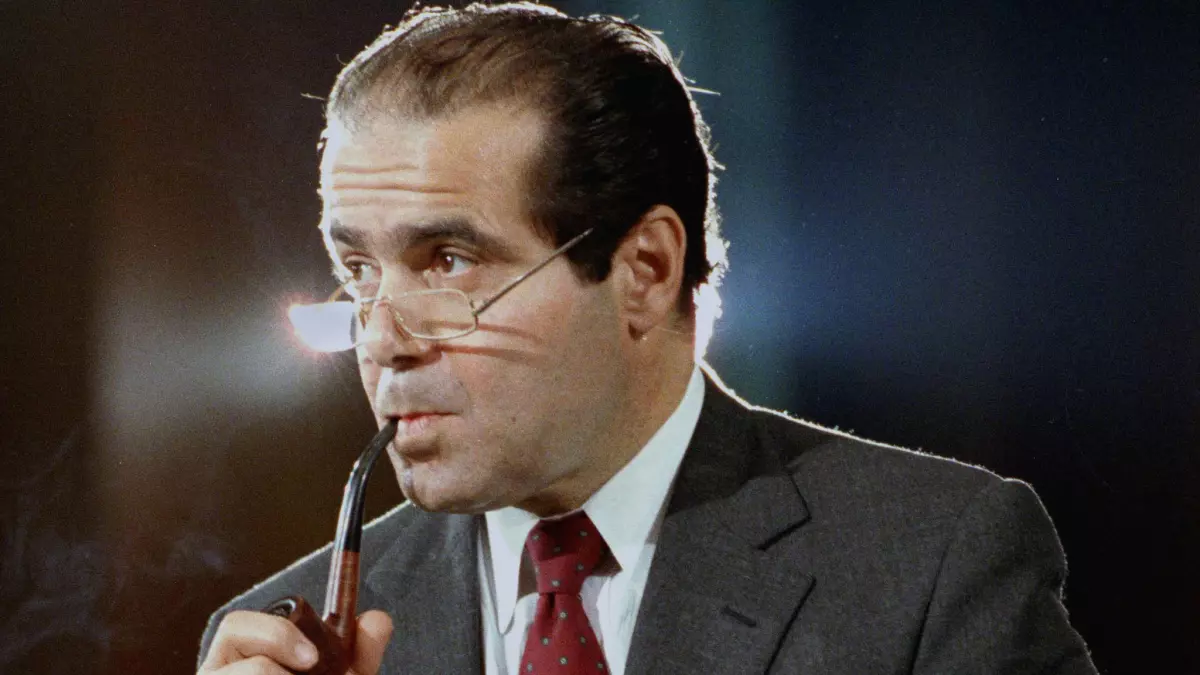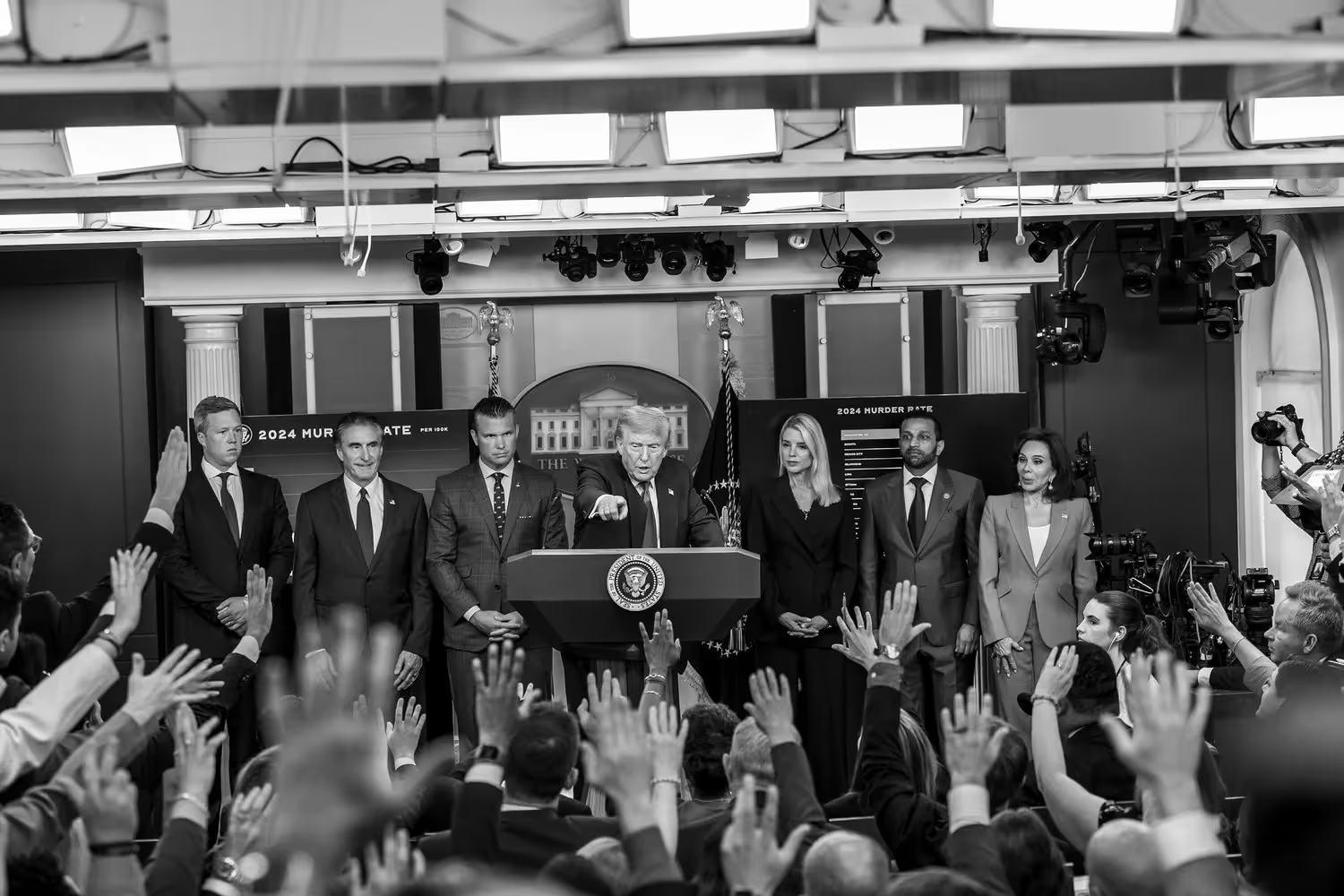
The Constitutional Questions Swirling Around the District of Columbia’s Disorder
President Trump and his administration are right to emphasize that federal officials have ultimate responsibility for the administration of our nation’s capital.
Death and decay shouldn’t symbolize our nation’s capital. But it has for far too long. When President Donald Trump announced his intention to “federalize” our nation’s only federal city, Washington, D.C., leftwing activists reacted with a combination of dismay and horror, citing Trump’s supposed authoritarian impulses and statistics purporting to show that crime isn’t as bad as it seems.
But that’s not right. Consider that the District suffered from almost three times as many carjackings last year (497) compared to only a few years earlier in 2018 (148). And that’s after local officials claimed (there’s reason to be suspicious of recent reported numbers) to have cut carjackings in half from the astounding 957 that occurred in 2023. Murders have trended in the wrong direction, too, moving upwards from a low of 88 homicides in 2012 to a 20-year high of 274 in 2023. The relatively low number of 187 homicides in 2024 is still much higher than in other recent years, too.
Given this, even some ordinarily opposed to Trump’s policies instinctively recognize the truth of what he’s been saying. Our nation’s capital should be a showcase for what makes America great, not a dangerous embarrassment where members of Congress, their staff, and ordinary Americans are too often victims of violent crime with little to no consequences for those committing it.
But what gives Donald Trump—or any President—the right to “federalize” D.C.’s local police force? And why can Congress override “local” legislation passed by D.C.’s “local” city council? It’s because D.C. officials aren’t really exercising their own “local” authority at all; they are exercising delegated federal authority all the way down. This realization, in turn, raises interesting questions about whether the District can sue the federal government as the D.C. Attorney General has done (spoiler: Probably not, since it’s essentially the federal government suing itself) and whether D.C.’s local courts are constitutionally constituted (spoiler again: Probably not).
Reasons for a Federal Capital City
To understand why all of this matters, though, it’s important to know why the Framers of our Constitution created a unique federal city that’s ultimately subject only to federal control. And to do that, one must travel all the way back to Philadelphia in June of 1783. There, a group of disgruntled Continental soldiers surrounded the Continental Congress. Pennsylvania’s governor refused to call out the militia to protect the Congress and its members, so they were “forced to flee Philadelphia and become itinerants for the next several years.” This incident left an indelible impression on the Framers who drafted the Constitution only a few years later. And they wanted to make sure that the federal government would never again be dependent on state or local authorities for its safety and security.
For most of our nation’s history, Congress had a much more active role in managing the day-to-day operations of the District of Columbia than it does today. This didn’t change until it passed the Home Rule Act of 1973. Under that Act, Congress delegated certain tasks to local authorities but retained ultimate authority to step in or override the actions of local officials. And from time to time—probably too infrequently—it has exercised that prerogative. In the late 1990s, Congress stripped local officials of budgetary authority and established a fiscal control board to manage the District’s troubled finances. And even more recently, Congress stepped in (on a bipartisan basis) and stopped a radical soft-on-crime rewrite of D.C.’s local criminal code from taking effect.
But it needs to do more. While the President has so far taken the unilateral actions available to him, some of the problems that created Washington, D.C.’s crime crisis require Congressional intervention.
Lawlessness Caused by Local Progressive Policies
Start with the lenient laws passed by the D.C. City Council. In addition to overriding the radical rewrite of D.C.’s local criminal code, Congress stepped in and, again on a bipartisan basis, overrode the D.C. Council’s local version of the failed George Floyd Justice in Policing Act. But then-President Biden vetoed that override, so the law took effect. This effort to demoralize the local police force, coupled with efforts to defund it, has led to a historic staffing crisis with the department short almost 800 officers. Some estimate that under current conditions, it will take a decade or more for the force to recover.
Then there are the issues surrounding juvenile crime. The D.C. U.S. Attorney—unique among all U.S. Attorneys—also serves as the local prosecutor for the District of Columbia. She (Jeanine Pirro currently holds that position) has plenary authority to prosecute crimes in the District except for those committed by juveniles. Unlike many states, the District’s current law doesn’t allow for most juveniles to be prosecuted as adults even in appropriate circumstances. Moreover, primary authority for prosecuting juvenile offenders rests with D.C.’s locally elected attorney general, who has said that “kids are kids” who should never be prosecuted as adults, no matter how heinous their crimes and no matter how old they are. He’s also said that D.C. can’t prosecute its way out of its current crime crisis, an odd statement from a prosecutor. Congress should give the D.C. U.S. Attorney primary authority for prosecuting all offenders, including juveniles, and allow her to pursue appropriate charges and punishments regardless of an offender’s age.
Congress should also change the law that allows judges to ignore mandatory minimum sentences for those younger than 25, change the law that allows those who are younger than 25 at the time they committed their crimes (including violent crimes like murder and rape) to ask for a reduced prison sentence after serving only 15 years, and change the law that allows most offenders to have their convictions sealed (or hidden) from public view.
Federal Power All the Way Down
Questions about the appropriateness of other current institutional arrangements put in place to help govern D.C. should also be at the forefront when one stops to consider D.C.’s unique status as an arm of the federal government. For example, the D.C. Attorney General probably shouldn’t be allowed to sue the federal government, as he has repeatedly done. The federal government can’t sue itself.
And on top of that, the appointment and re-appointment processes for judges on D.C.’s “local” courts become constitutionally suspect when one stops to think about it. What judicial power are these judges exercising? Is it the judicial power of the United States or the judicial power of the District of Columbia? It seems certain that it’s the former—though some might disagree. (It’s worth noting, though, that all prosecutions in D.C.’s “local” courts for violations of D.C.’s “local” criminal code are brought in the name of the United States—underscoring that federal power is at play). And if these “local” judges are, in fact, exercising federal power, then they should meet the constitutional requirements for serving: appointment by the President, confirmation by the Senate, and service during “good Behaviour.” The current system doesn’t allow for that, and the President might consider making his own appointments to those courts regardless of whom the local Judicial Nominating Commission recommends.
All of this goes back to why the Framers of the Constitution established the District of Columbia as a separate federally controlled entity in the first place. They understood that Americans needed a place to conduct the business of our nation free from the (too often petty) influence of local officials. President Trump and his administration are right to renew focus on these facts and to emphasize that federal officials have ultimate responsibility for the administration of our nation’s capital. Congress and the courts would do well to remember that, too.
Zack Smith is a Senior Legal Fellow and the Manager of the Supreme Court and Appellate Advocacy Program at The Heritage Foundation’s Edwin Meese III Center for Legal and Judicial Studies.
Politics

National Civitas Institute Poll: Americans are Anxious and Frustrated, Creating a Challenging Environment for Leaders
The poll reveals a deeply pessimistic American electorate, with a majority convinced the nation is on the wrong track.
.webp)
Liberal Democracy Reexamined: Leo Strauss on Alexis de Tocqueville
This article explores Leo Strauss’s thoughts on Alexis de Tocqueville in his 1954 “Natural Right” course transcript.
%20(1).avif)
Long Distance Migration as a Two-Step Sorting Process: The Resettlement of Californians in Texas
Here we press the question of whether the well-documented stream of migrants relocating from California to Texas has been sufficient to alter the political complexion of the destination state.
%20(3).avif)
Who's That Knocking? A Study of the Strategic Choices Facing Large-Scale Grassroots Canvassing Efforts
Although there is a consensus that personalized forms of campaign outreach are more likely to be effective at either mobilizing or even persuading voters, there remains uncertainty about how campaigns should implement get-out-the-vote (GOTV) programs, especially at a truly expansive scale.

There's a Perception Gap With the U.S. Economy
As we approach another election cycle, it’s worth asking: what’s real, what’s political theater, and what does it all mean if Democrats regain control of the House?

International Law Is Holding Democracies Back
The United States should use this moment to argue for a different approach to the rules of war.
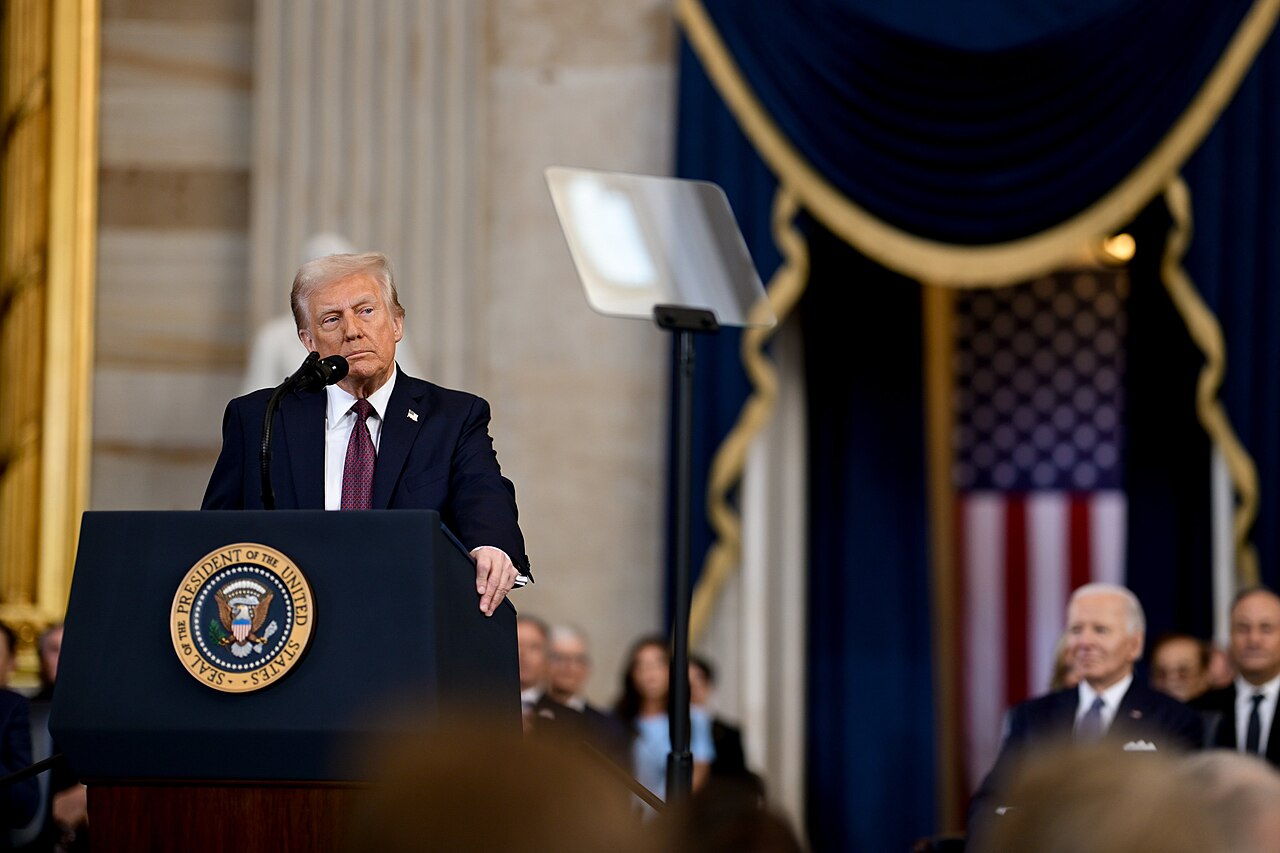
Trump purged America’s Leftist toxins. Now hubris will be his downfall
From ending DEI madness and net zero to securing the border, he’ll leave the US stronger. But his excesses are inciting a Left-wing backlash
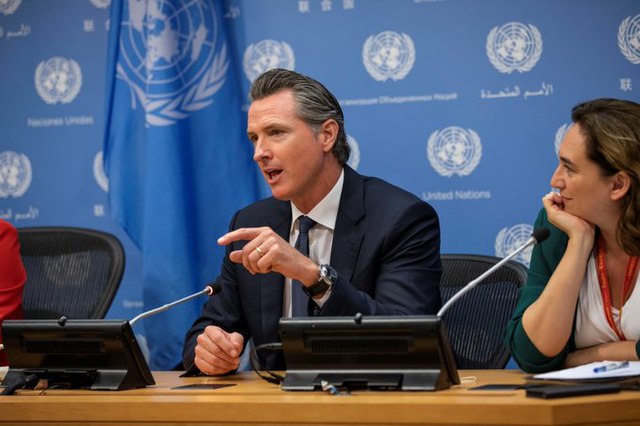
California’s wealth tax tests the limits of progressive politics
Until the country finds a way to convince the average American that extreme wealth does not come at their expense, both the oligarchs and the heavily Democratic professional classes risk experiencing serious tax raids unseen for decades.

When Duvall Played Stalin
It’s strange to compliment an actor for impersonating a tyrant, but it is an act of courage.
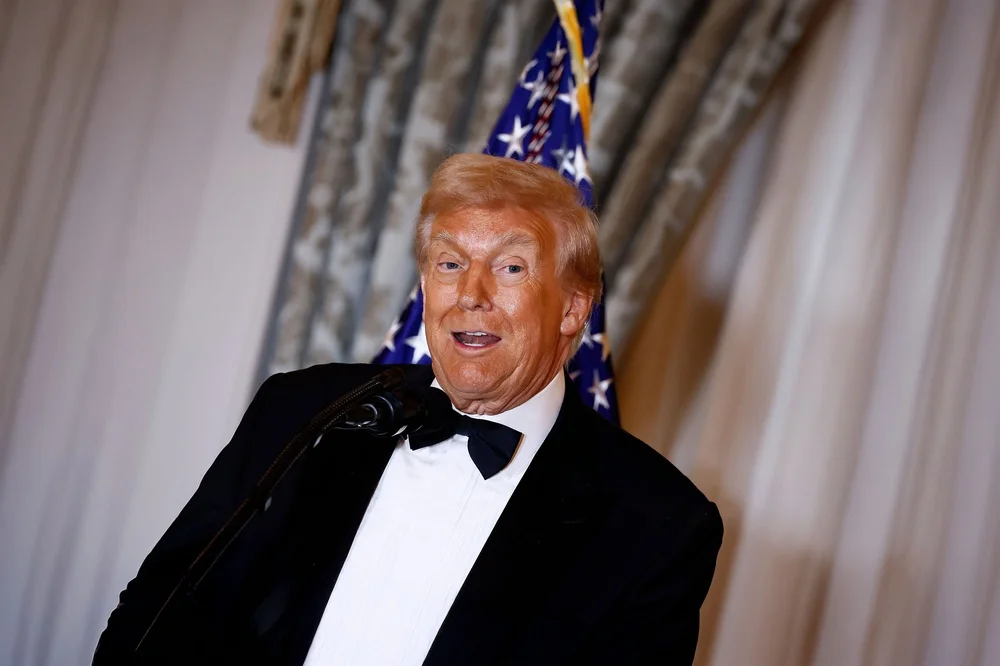
When Vanity Leads to Impropriety
A president should simply not be allowed to name anything after himself without checks from Congress or an independent commission.








